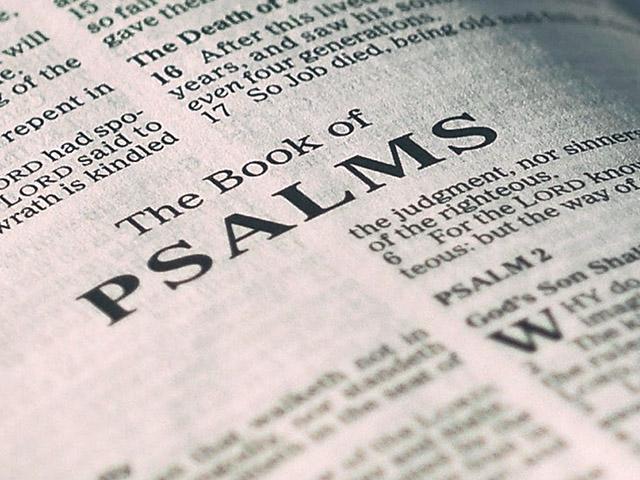Living Sacrifices: The Dynamics of Christian Sanctification
We are to offer our bodies as living sacrifices, holy and pleasing to God. This statement of Paul calls back imageries from the old covenant’s sacrificial system. A sacrifice is an offering made to God.
The Old Testament Background
There were five different sacrifices in the system – burnt offering, the grain offering, peace offering, sin offering, and trespass offering. The burnt offering was a voluntary sacrifice that depicts devotion and commitment to God. They also used it to atone for unintentional sins. With the burnt offerings, they only gave the hide of the animals to the priests; they burnt the rest completely. The grain offering was an expression of thanksgiving for God’s goodness. They offered it in the form of a cake or baked bread accompanied by a drink offering. The peace offering was both a thanksgiving and fellowship offering. It consisted of animals and/or bread and grains. They only burnt the fat, kidneys, and the lob of the animals. The breast and the right foreleg were given to the priests while the participants eat the remainder.
The trespass offering was a ram offered for unintentional sins requiring reimbursement and cleansing from physical defilement. The fat, kidney, and liver were burnt while the others were eaten within the temple. The sin offering was for atonement and cleansing from defilement. The lobe of the liver, fat, and kidney were brunt while the others were either burnt (with ashes thrown outside the camp) or eaten within the court.
When an Israelite offers an animal to God, he relinquishes all claims to that animal to be disposed of according to God’s instructions in the Torah. To offer a sacrifice to God is to set it apart, and yield it to God to do with it as he sees fit (via the priests).
Living Sacrifices
Therefore, when Paul instructs us to offer our bodies to God as living sacrifices, one of the things he means is that we must submit, yield, and relinquish ourselves to the God who has shown such great mercies. When we offer our bodies, we submit to God to do with us, as he wants. We are no longer in control of our bodies; rather, they are under the control of God to do with them as he pleases.
The reference to bodies here comes from Romans 6. Romans 6 depicts the body as the instrument through which we serve either sin or righteousness. To offer the parts of our body to God is also to offer ourselves to God (Romans 6:13). The body is the means through which we live our lives in the world. To present the body is, therefore, to present ourselves – our whole being, and all the means by which we live in this world to God. The call of Paul here is to yield the whole of ourselves to God.
However, unlike the animals used in the Levitical system, we are living sacrifices. When we yield ourselves to God, it is still “we” that live. We still have freedom and consciousness. We are still the ones to act, decide, walk, speak, write, think, etc. Unlike the animals who are passive in the whole process (by their death), we are living sacrifices – we still live and breathe even though we have yielded our lives to God.
Paul brings out this tension in Galatians 2:20: “I have been crucified with Christ, and I no longer live, but Christ lives in me. The life I live in the body, I live by faith in the Son of God, who loved me and gave himself for me.” Paul is dead and alive at the same time. He has been crucified with Christ, yet he lives. Christ now lives in him, yet the life is lived in his body.

The implications
The implication of this is that unlike the offering of the animals, the offering of ourselves to God is both decisive and continuous. It is decisive in the sense that when Christ calls us to himself and gives us faith and repentance, we make an absolute commitment to yield to him. (1 Corinthians 12:3). However, as living sacrifices, we must make a continual commitment to yield to him every day of our lives. Since we still live, we must keep deciding to submit to him, to resign ourselves to him so he can do with us as he pleases.
What does it mean then to live as a Christian? One answer that Paul gives here is that living as a Christian means a continuous and conscious yielding of our lives to the will and desires of our God. It is the struggle of living by the Spirit rather than the flesh (Galatians 5), serving righteousness rather than sin (Romans 6). In essence, Christian sanctification is yielding our wills to God’s will and offering all the members of our body under the guidance of his will.

All of life is worship: The Heart of Christian Sanctification
The sacrifices in the Old Testament were to be holy and without blemish (Leviticus 1:3, 10; 3:1; 22:20; Deuteronomy 15:21; 17:1). One of the complaints in Malachi 1 (verses 6-8) was that the people of God offered blind, crippled, diseased animals to the Lord (what they can’t give to their governors). In essence, the holiness of the animals was also a measure of quality and wholeness. A holy animal is a whole animal, with no defects and no omissions.
Similarly, when we offer our bodies to God, it must be holy and without blemish. We must present ourselves completely, with no part missing. It is a comprehensive and total commitment that mirrors the greatest commandment- love the Lord your God with all your heart and with all your soul and with all your mind (Mathew 22:37).
In a sense, either we offer all of our lives to God, or we offer nothing. God does not compromise. He welcomes no blemished sacrifices in his court. He is either Lord of all or none at all.
Such a sacrifice pleases God. It only pleases God if it is holy. Such wholesale, comprehensive, total yielding of ourselves to the Lord continually pleases God.
Doing this is what it means to worship. Such yielding is our spiritual act of worship (or spiritual service of worship – NASB). Worship, according to Romans 12:1, is the yielding of our whole lives to God for him to direct every part of it according to his will and for his purpose. If this is worship, it means that we cannot limit the idea of worship to three hours on Sunday morning. If as living sacrifices, our yielding must be continuous and wholesale, it means all of life is worship. Everything we do with our bodies is a sphere of worship. Everywhere we go with our body is a sphere of worship. Every area of life is a sphere of worship. Everywhere and everything in respect to which God has a will is a sphere of worship. Since offering our bodies as a living is yielding to his will, worship takes place everywhere God has a will. Where does God have a will? Everywhere (and over everything). All authority in heaven and earth has been given to him (Mathew 28:18). Therefore, we cannot escape the conclusion that all o life is worship. This does not downplay the uniqueness of the time that believers gather together in worship (Hebrews 12:24); instead, it is to emphasize that biblical worship encompasses more than the time believers gather together in public worship.
If we rightly understand Paul, it means we have to stop dividing our lives into secular and spiritual aspects and recognize that Christ claims lordship over every area, and we are to worship him in every area. His word (how he expresses his will) must guide us in church, work, leisure, entertainment, business, etc. At every point, the question we will be asking is, “what’s the will of God here (what does he say in his word)?” No wonder Paul said elsewhere that “whether you eat or drink or whatever you do, do it all for the glory of God.” The “whatever else” incorporates everything and anything. This is what it means to live as a Christian.

The foundation of Christian sanctification is justification (mercies of God), the dynamic of Christian sanctification is offering our bodies as living sacrifices, holy and acceptable to God, and the heart of Christian Sanctification is living all of life as worship.



